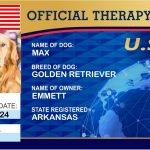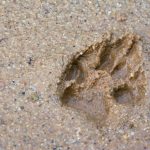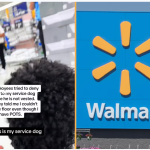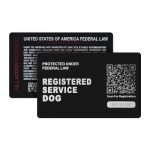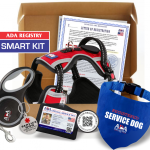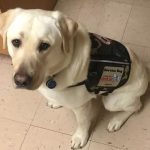NYC Pet Hotline Launched As Two New York Cats Test Positive for COVID-19
May 4, 2020

Following recent reports by the CDC that two pet cats in New York State contracted the novel coronavirus, pet owners around the City may have become concerned that their own pets may get infected. However, they can now call a new Pet Hotline which will serve as an information, planning, referral and service coordination hub for New York City pet owners.
On Apr. 29, the City’s emergency management department and the Mayor’s Office of Animal Welfare announced the launch of the NYC COVID-19 Pet Hotline for those who need support for their pets during the COVID-19 pandemic.
“Pets and service animals are a part of our family, and we want to alleviate any concern associated with having to take care of these family members during these trying times,” said NYC Emergency Management Commissioner Deanne Criswell. “We are thankful to our task force members who have stepped up to help New Yorkers who need this service.”
The NYC Pet Hotline responders will answer questions and help address pet owners’ concerns about how to keep their pets safe during the COVID-19 crisis. The team will also connect callers to pet relief resources such as subsidized emergency veterinary care and food and supply distribution services.
On Apr. 22, the CDC and the U.S. Department of Agriculture’s (USDA) National Veterinary Services Laboratories (NVSL) announced the first confirmed cases of COVID-19 infection in two pet cats, the first pets in the United States to test positive for the virus.
Norwood News reported on Apr. 6 that a tiger at Bronx Zoo had already tested positive for the novel coronavirus, and following an investigation, National Geographic later reported that about a week later, four more tigers and three lions at Bronx Zoo tested positive as well.
The two infected pet cats live in two separate areas of the State. Both have mild respiratory illness and are expected to make a full recovery. Coronavirus infections have been reported in very few animals worldwide, mostly in those that had close contact with a person with COVID-19. In late March, it was reported that a cat in Belgium had also tested positive.
In a joint statement with CDC, USDA wrote that routine testing of animals is not recommended at this time, and that if other animals are confirmed positive for the novel coronavirus in the United States, USDA will update its register of confirmed animal cases.
In the statement, the two federal agencies also wrote that state animal health and public health officials would take the lead in making determinations about whether animals should be tested for the virus.
The agencies wrote that a veterinarian tested the first cat after it showed mild respiratory signs. No individuals in the household were confirmed to be ill with COVID-19. “The virus may have been transmitted to the cat by mildly ill or asymptomatic household members, or through contact with an infected person outside its home,” the statement read.
They said samples from the second cat were taken after it showed signs of respiratory illness and it transpired that the owner of the cat had tested positive for COVID-19 prior to the cat showing any symptoms. “Another cat in the household has shown no signs of illness,” the statement read.
The agencies wrote that both cats tested “presumptive positive” at a private veterinary laboratory, which reported the results to state and federal officials. The confirmatory testing was conducted at NVSL and included the collection of additional samples.
NVSL serves as an international reference laboratory and provides expertise and guidance on diagnostic techniques, as well as confirmatory testing for foreign and emerging animal diseases. Such testing is required for certain animal diseases in the U.S. in order to comply with national and international reporting procedures.
The World Organization for Animal Health (OIE) considers the coronavirus an emerging disease, and therefore USDA must report confirmed U.S. animal infections to the OIE.
CDC and USDA wrote that public health officials are still learning about the coronavirus, but that there is no evidence so far that pets play a role in spreading it in the United States. As such, the agencies say there is no justification for taking any measures against pets that might compromise their welfare. “Further studies are needed to understand if and how different animals, including pets, could be affected,” their statement read.
Until more information is available, the CDC recommends adhering to the following guidelines:
- Do not let pets interact with people or other animals outside the household.
- Keep cats indoors when possible to prevent them from interacting with other animals or people.
- Walk dogs on a leash, maintaining at least 6 feet from other people and animals.
- Avoid dog parks or public places where a large number of people and dogs gather.
If you are sick with COVID-19 (either suspected or confirmed by a test), restrict contact with your pets and other animals, just like you would around other people.
- When possible, have another member of your household care for your pets while you are sick.
- Avoid contact with your pet, including petting, snuggling, being kissed or licked, and sharing food or bedding.
- If you must care for your pet or be around animals while you are sick, wear a cloth face covering and wash your hands before and after you interact with them.
CDC wrote that while additional animals may test positive as infections continue in people, it is important to note that conducting animal testing does not reduce the availability of tests for humans.
Dr. Paul Calle, Bronx Zoo chief veterinarian, wrote, via Twitter, in early April, “The COVID-19 testing that was performed on our Malayan tiger Nadia was performed in a veterinary school laboratory and is not the same test as is used for people.”
Calle added, “You cannot send human samples to the veterinary laboratory, and you cannot send animal tests to the human laboratories, so there is no competition for testing between these very different situations.”
The CDC also highlights the following key points in relation to COVID-19 and animals:
- We do not know the exact source of the current outbreak of coronavirus disease 2019 (COVID-19), but we know that it originally came from an animal source.
- At this time, there is no evidence that animals play a significant role in spreading the virus that causes COVID-19.
- Based on the limited information available to date, the risk of animals spreading COVID-19 to people is considered to be low.
- We are still learning about this virus, but it appears that it can spread from people to animals in some situations.
The NYC Pet Hotline and supportive services are being provided by the City’s Animal Planning Task Force, which is coordinated by NYC Emergency Management. The Task Force is a collaboration between City agencies and nonprofits.
For New York City residents who own pets requiring a higher level of care, cases will be escalated for coordination of temporary placement or supplemental care of animals.
“This Administration has always understood that animals share our homes, our lives, and are sometimes our closest companions,” said Mayor’s Community Affairs Unit Commissioner Marco A. Carrión. “We must support and plan for all New Yorkers, including four-legged ones, during these times, and we are grateful to all of the animal welfare partners who have stepped up to create the Pet Hotline and provide lifesaving services to animals.”
The NYC Pet Hotline is the first of its kind in the country. The number to call is 1-877-204-8821. Support is available from 8:00 a.m. to 8:00 p.m., seven days a week.
Check Out Our Store


